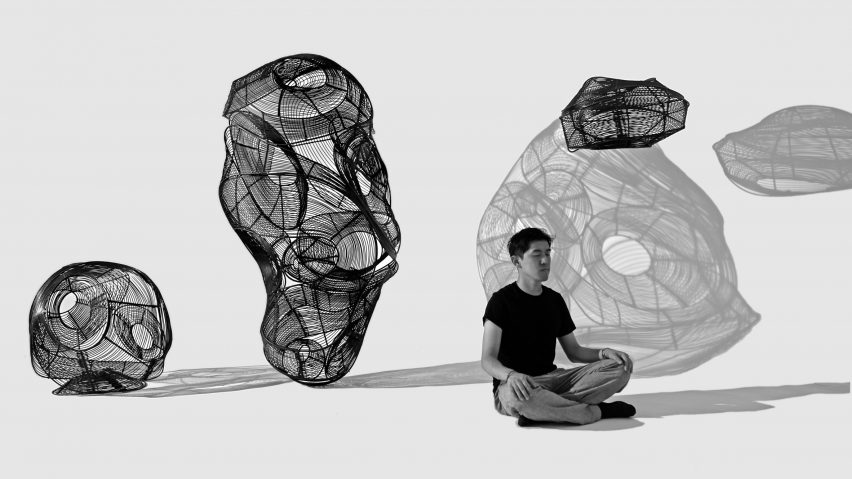
Jun Jie Zhang creates irregular lamp shades from woven bamboo
Hangzhou-based designer Jun Jie Zhang aims to show the softer qualities of bamboo with his series of woven light shades, which were displayed during this year's Design Shanghai.
The Bamboo Softness lighting collection features bent lengths of bamboo arranged to create organic, hollow shapes to be used as lamp shades.
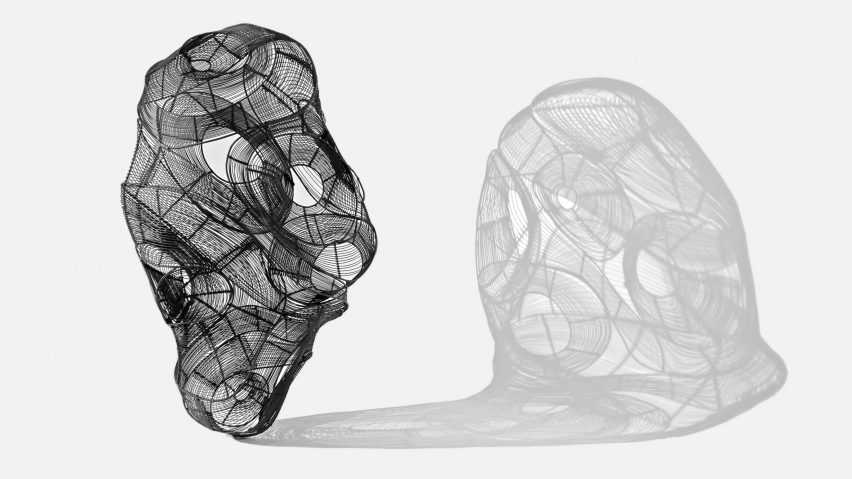
The lamp shades are part of a collection by Chinese design studio Sozen, which was founded by Zhang in 2011.
Presented at Design Shanghai, which took place between 6 and 9 March, the shades include wavy patterns composed of intersecting sets of parallel lines, which form intricate shadows when light is projected through them.
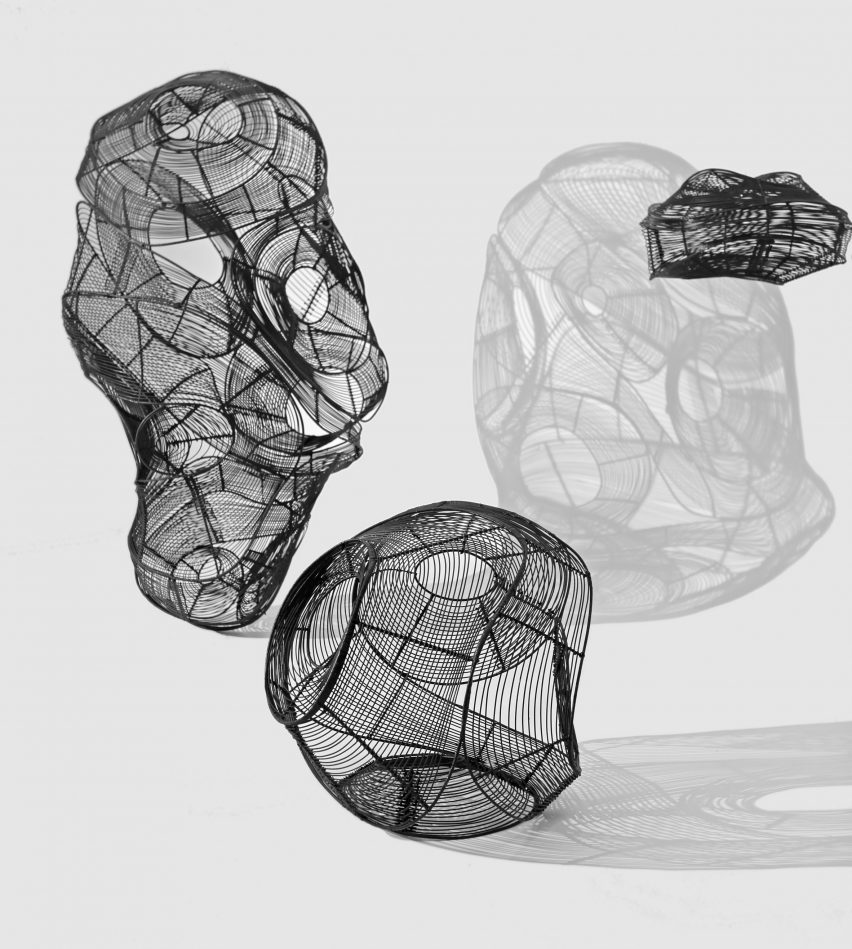
Zhang began researching and experimenting with bamboo-weaving eight years ago, focusing particularly on the traditional techniques used south of the Yangtze river in China – one of the largest areas of bamboo production.
During his years of experimentation, Zhang was surprised to find that bamboo has elastic properties, despite being a naturally rigid material. He decided to explore this further by creating a series of woven products.
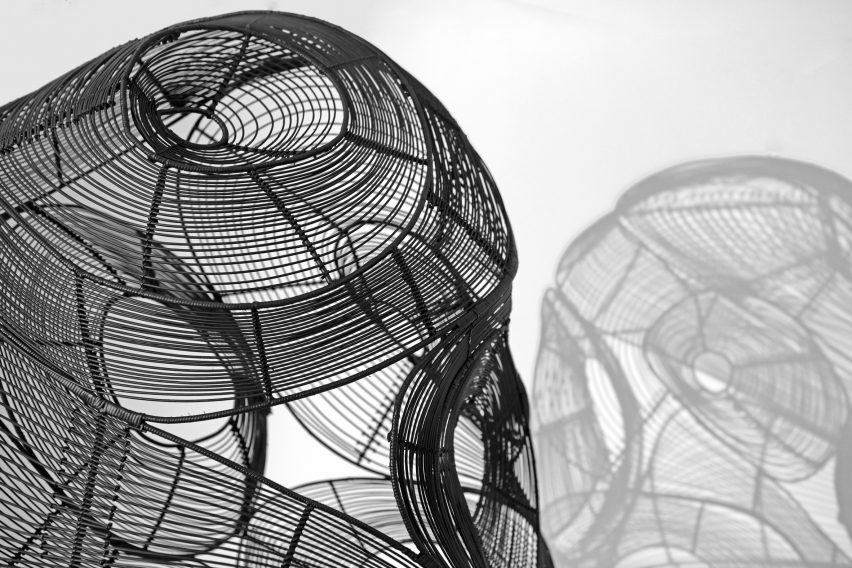
His Bamboo Softness project aims to test the limits of bamboo's elasticity and to show its softer characteristics.
"Bamboo is very strong and tenacious, but it also has its soft side. The softness of bamboo seems soft but is endowed with some rigidity inside, in the eastern way," he said.
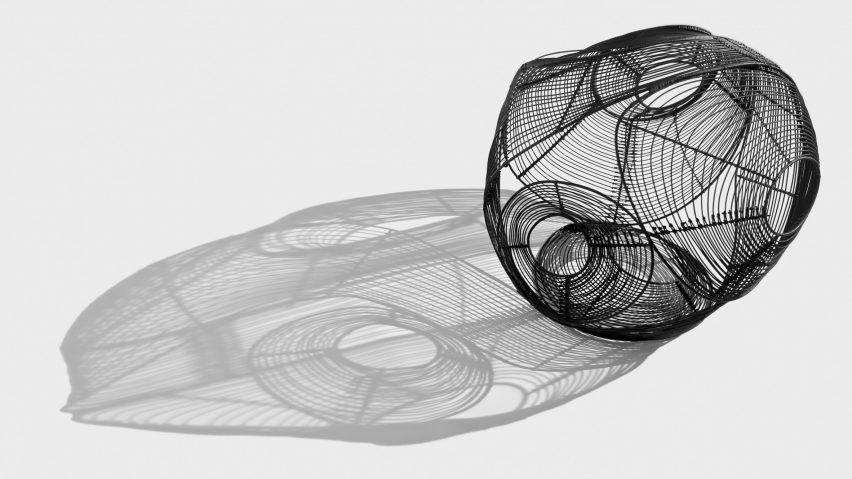
The designer used computer-aided design (CAD) to simulate the "flowing state" of clouds, before using thin longitudinal and latitudinal strips of bamboo to recreate by hand the three-dimensional composition of this digital model.
Zhang made use of the natural elasticity of bamboo when forming the curved shapes of the lamps, aiming to make the pieces seem as smooth and flexible as possible.
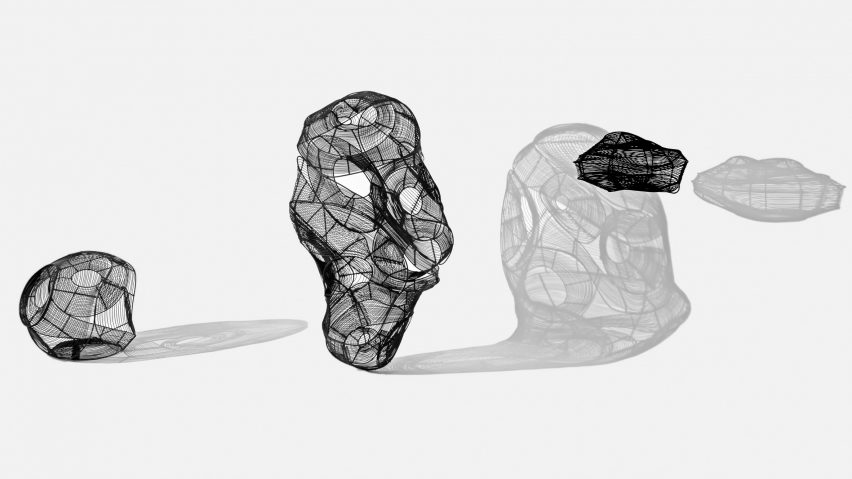
Focusing on materials, crafts and technology, the Hangzhou-based practice aims to integrate elements of traditional Chinese culture into objects designed for the modern day.
Zhang's work focuses specifically on the relationship between digital technology and ancient craft techniques. Before founding Sozen, he studied at China Academy of Arts in Shanghai and still teaches there in the industrial design department.
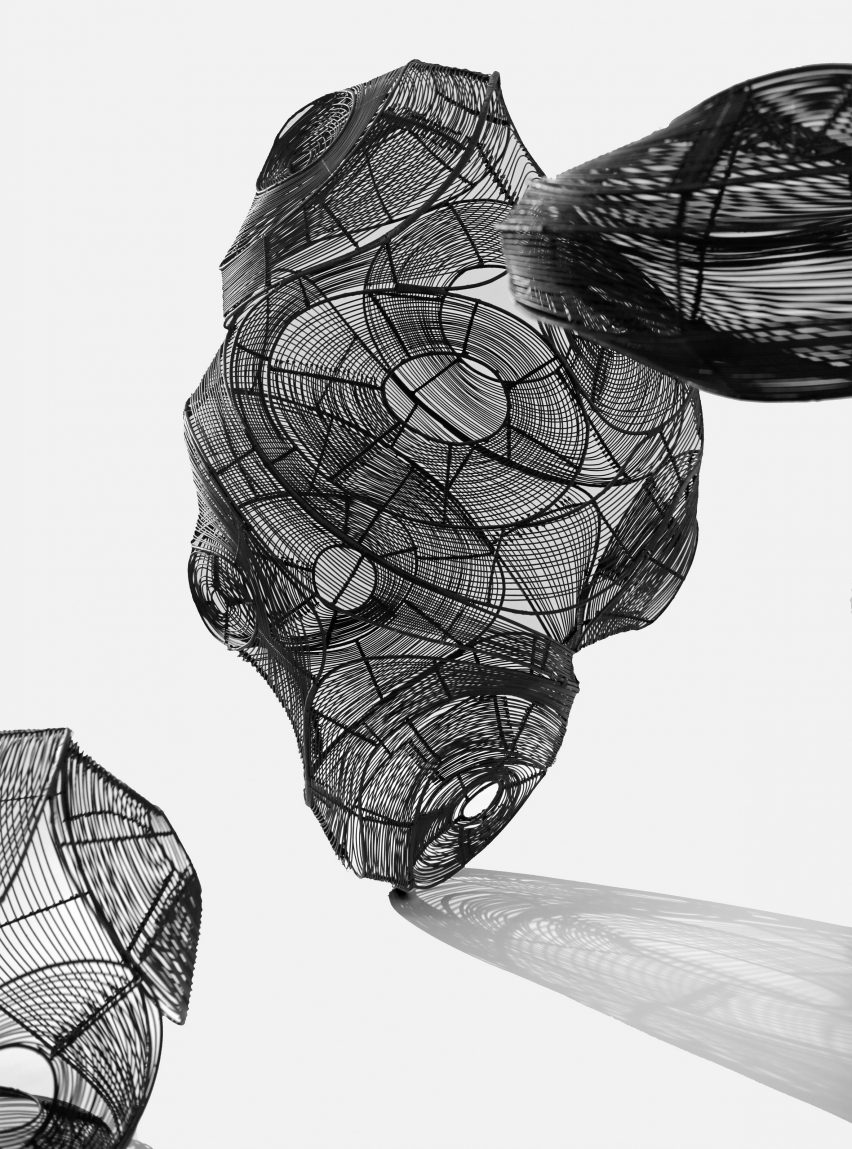
Design Shanghai took place last week at the Shanghai Exhibition Centre, and also featured a furniture series made of iridescent, electroplated steel by Buzao, and a range of seating inspired by the looped shape of paperclips